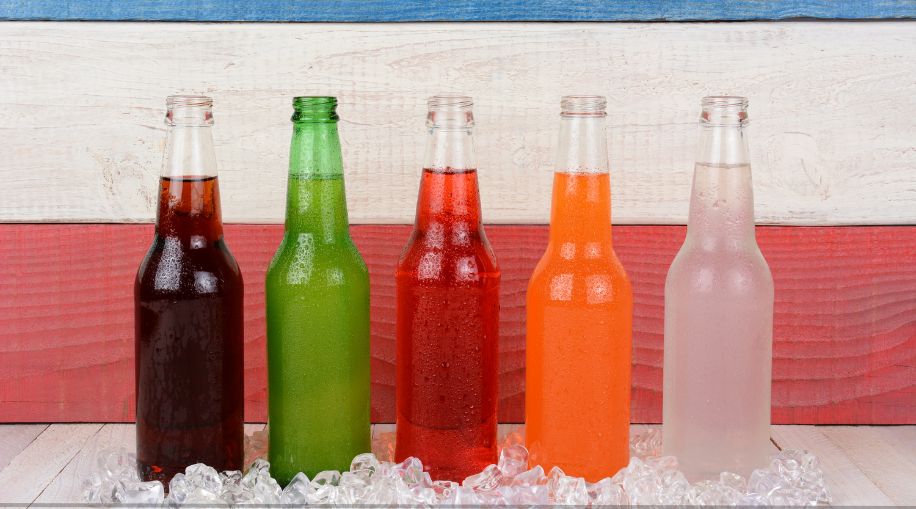The Wrong Sips
Lung cancer is a serious illness that affects your lungs and can cause big health problems. Treating lung cancer usually involves medication, radiation and changes to your lifestyle. What you drink can also make a difference in your health during treatment.
Carcinogenic Drinks to Avoid
- Alcohol.
- Sugary sodas.
- Energy drinks.
- Artificially sweetened beverages.
- High-caffeine drinks.
- Processed fruit juices.
- Carbonated soft drinks.
- Hot beverages at very high temperatures.
Drinks to Avoid with Lung Cancer
Alcohol
Alcohol can weaken your immune system, making it harder for your body to fight off infections. It can also interfere with certain cancer treatments, such as chemotherapy, and may increase the risk of side effects. Additionally, alcohol can irritate the throat and lungs, especially if cancer has spread to these areas.
Sugary Beverages
Drinks high in sugar, such as sodas, energy drinks and sweetened fruit juices, can lead to inflammation and contribute to weight gain. Maintaining a healthy weight is crucial for people with lung cancer, as excess weight can make it harder to breathe and manage symptoms.
Caffeinated Drinks
Excessive caffeine from coffee, tea, or energy drinks can cause dehydration and increase anxiety or nervousness, which may already be heightened due to lung cancer. Caffeine can also interfere with sleep, which is vital for recovery.
Carbonated Beverages
Carbonated drinks like soda or sparkling water can cause bloating and discomfort, which can be particularly troublesome for those with lung cancer. Bloating can put additional pressure on the lungs, making it more difficult to breathe.
Very Hot Drinks
Extremely hot beverages can irritate the throat and esophagus, especially if these areas are affected by cancer or its treatments. It's best to let hot drinks cool down before consuming them.
Best Drinks for Lung Cancer
Water
Staying hydrated is essential, and water is the best way to do it. Drinking plenty of water helps your body function properly and supports the immune system.
Herbal Teas
Herbal teas like ginger or peppermint can soothe the digestive system and help with nausea, a common side effect of cancer treatment. These teas are caffeine-free and can be consumed warm or cold.
Fresh Vegetable Juices
Juices made from fresh vegetables like carrots, beets and leafy greens are packed with vitamins and antioxidants that can support your health. Just be sure to consume them in moderation to avoid excessive sugar intake.
Smoothies
Smoothies made with low-sugar fruits, vegetables and added protein can be a nutritious option. Adding ingredients like spinach, berries and flaxseeds can boost their nutritional value and support overall health.
Broth-Based Soups
Warm broths or soups are easy to digest and can help keep you hydrated. Opt for low-sodium options to avoid excessive salt intake.
Treatment Options for Lung Cancer
- Chemotherapy: Chemotherapy uses drugs to kill cancer cells or stop them from growing. It can be administered intravenously or orally, depending on the type and stage of lung cancer.
- Radiation therapy: This treatment uses high-energy rays to target and kill cancer cells. Radiation therapy is often used alongside other treatments to shrink tumors or relieve symptoms.
- Targeted therapy: Targeted therapy focuses on specific proteins or genes that contribute to cancer growth. These treatments are usually used for specific types of lung cancer with certain genetic mutations.
- Immunotherapy: Immunotherapy helps your body’s immune system recognize and attack cancer cells. It’s a newer treatment option that has shown promise in treating some lung cancers.
- Surgery: In cases where the cancer is localized, surgery may be performed to remove the tumor or part of the lung. Surgery is typically combined with other treatments to ensure all cancer cells are removed.
The Wrong Sips
If you have lung cancer, being mindful of what you drink can make a difference in managing your symptoms and supporting your treatment. Avoiding certain beverages, like alcohol and sugary drinks, can help prevent complications and improve your overall well-being. Instead, opt for healthier options like water, herbal teas and fresh juices. Alongside these dietary choices, explore the treatment options available to find the best approach for your situation.

